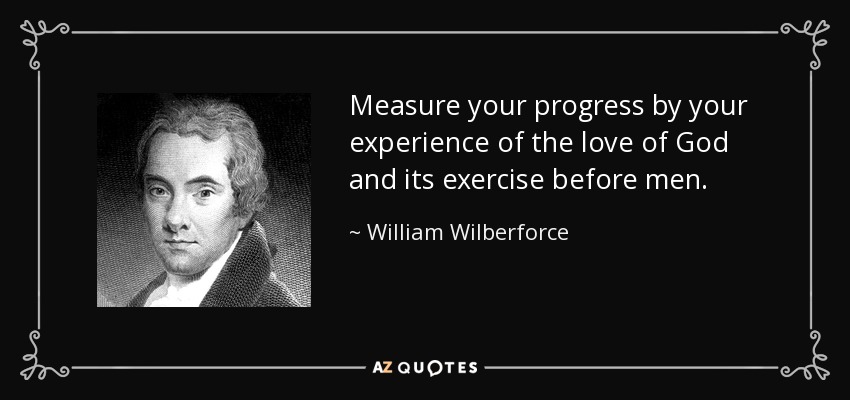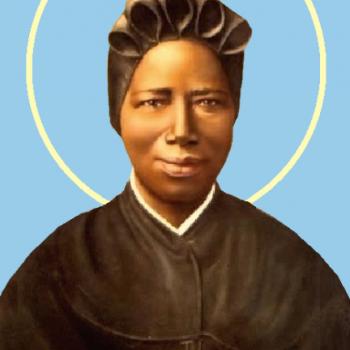This is the second part of a three part series on single-issue activism and social justice. The first part is here. The third part, Salt and Light, is posted on The Personalist Project.
William Wilberforce was an 18th century politician and activist. He was the abolitionist who eventually succeeded in getting the Slave Trade Act of 1807 passed. He continued to campaign against slavery the rest of his life, finally seeing the Slavery Abolition Act passed in 1833.
Nobody could call Wilberforce’s commitment to abolition “dissolved” or ineffective.
With his Clapham friends, Wilberforce was an advocate for the creation of a free colony in Sierra Leone, which he and others envisioned as a place of complete racial equality. The Clapham Sect, sometimes called “the saints” by contemporaries, were a religiously motivated, politically diverse group of social reformers who were involved in the founding of multiple societies and movements–including the Proclamation Society (promotion of public morality), the Abolition Society, the Anti-Slavery Society, the Bettering Society (improving the lives of the working class through factory and mining reform, among other things), and the Small Debt Society (freeing men and women from debtor’s prison).
Wilberforce himself was reputed to have belonged to almost 70 different societies and organizations, many of them committed to one or another social reform. Among these, he was one of the original members of the Society for the Prevention of Cruelty to Animals.
(I am fascinated, incidentally, by the way animal-cruelty-prevention societies paved the way for the creation of children’s welfare societies. What would happen if, instead of mocking animal right’s activists for treating animals as persons but not the unborn, we endorsed their empathy and encouraged them to expand the principles they already endorse? The precedent is there.)
Wilberforce helped found the “Society for the Suppression of Vice,” which sought to counter public drunkenness, gambling, fraudulent trading practices, pimping, pornography, and cruelty to animals.
Wilberforce was engaged in prison reform. He also advocated for lighter sentences for women prosecuted for the murder of abusive husbands, among other offensives. He frequently wrote in support of reprieves for individuals on death row.
He supported the establishment of schools for the poor. He was a member of several missionary societies and raised funds for overseas missions, particularly in India. He fought for parliamentary reform, and he opposed duelling as a criminal waste of God-given life.
Through all of this, Wilberforce remained an essentially conservative figure. He saw all of these causes as matters of morality, and was cautious about many of the labour rights advocated by radical reformers. Although he was socially connected to many influential and intelligent women, his attitudes towards women were essentially paternalistic, and he was not a promoter of women’s suffrage.
However, he did not allow his caution or differences of opinion prevent him from crossing the political aisle to work alongside anyone willing to be an ally in the fight against slavery or any of Wilberforce’s other causes. Other Claphamites shared this ability to transcend political divisions, and it’s been suggested that this disinterest in party politics is the factor that, in the end, made the Clapham reformers, and Wilberforce, some of the most effective agents of social reform of their time.
Wilberforce’s effectiveness is a contradiction to all of the “political realpolitik” single-issue pro-life activists in the US have learned to take for granted. His was an idealism that seemed bumbling and naive to some of his own political counterparts. Wilberforce’s political timing was frequently poor. He appealed to ministers and potential political allies with arguments drawn from conviction rather than expediency. He distrusted his own enjoyment of comfort and power, and even his abolitionist convictions could not persuade him to curry favour with those in power in hope of a ministry appointment. He remained a political independent instead, relying on friendship and common feeling to build support for his initiatives across party lines.
It is hard to imagine a modern-day Wilberforce sucking up to a man like Trump or Bannon. It is impossible to imagine him justifying or excusing unChristian behaviour or attitudes in anyone, ally or opponent.
For Wilberforce, the “single-issue” of his career–and the guiding principle of his life–was not abolition, but the Christian call to love as Christ loves. Throughout his life, he embraced every action and cause that he understood as tending towards that aim, and sought to reject worldly considerations that might distract him from it.















